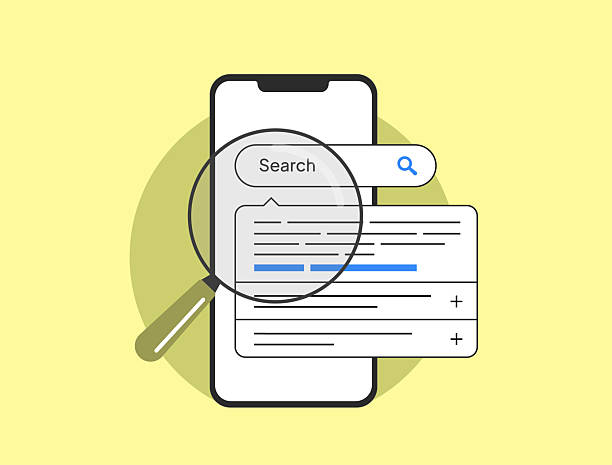Less than half of small businesses use pay-per-click advertising (45%) with the majority investing less than 1/3rd of their marketing budgets into PPC according to a recent Clutch survey. When implemented correctly, PPC campaigns work exceptionally well. PPC advertising allows businesses to gain brand awareness, and guide highly qualified leads deep into their sales funnel.
If you've ever heard an argument against PPC, it is likely that it had something to do with cost and transparency. PPC can be a black hole in your marketing budget. It can be expensive, especially for the most competitive keywords and unless you've gotten your 10,000 hours of PPC experience it can be hard to find and measure success.
Lucky for you, we have the best tips for jumpstarting your PPC advertising to make your campaigns as lucrative as possible.
Tip 1: Always define goals for your PPC campaigns
A marketing strategy without goals can get messy, and costly. Defining your goal at the beginning of your PPC campaign allows you to measure and identify your ROI on your campaigns. PPC campaign goals should follow the SMART method, which stands for goals that are specific, measurable, attainable, relevant, and time-bound.
You can use key performance indicators to help establish your goals. Key performance indicators, or KPIs, are metrics that help you identify how well something is or isn't performing. PPC KPIs can include Quality Score, click-through-rate (CTR), cost-per-conversion (CPC), and conversion rate.
Tip 2: Focus on high performing keywords, and filter out low performing keywords
Keywords are a central part of PPC campaigns. For a successful campaign, you'll want to pay attention to high and low 'performing' performing keywords. If you're using Google Ads, the platform comes with a Keyword Planner Tool to make your keyword research easy as ever. Keywords Everywhere is one of our favorite free SEO tools you can use in addition to the Google Ads Keyword Planner Tool to identify keywords with sufficient volume and moderate competition scores.
How do you identify high performing keywords? First you'll want to set up and track conversions in Google Ads. Conversions are the most important events that happen on your site. Form submissions, and content downloads always make really good conversion points to track.
With conversions being tracked, now you can look at your keywords and actually see which ones are converting into leads. The higher the conversion rate the better the keyword.
You'll probably notice some keywords that aren't converting well, if at all. Turn those low performing keywords into negative keywords. Using negative keywords is probably the single greatest thing you can do to minimize wasted ad spend.
Tip 3: Optimize your campaigns for a higher Quality Score
You might be wondering, 'What is a quality score?', and why you should be paying attention to it. If you are running PPC ads on Google Ads, formerly known as Google Adwords, you should be paying attention to Quality Score.
Your Quality Score ranks the quality and relevance of your landing pages, ads, CTR expectancy, and keywords on a scale of 1-10. Higher quality ads will have better ad positions and lower prices, which means better PPC results for you. Here are some tips to optimize your ads for your Quality Score:
- To increase your ad relevancy, try adding negative keywords. This will prevent your ad from showing up on unnecessary queries.
- To increase your expected CTR, try experimenting with various CTA's. Different calls-to-action will yield different results depending on the user.
- To improve your landing page experience, always make sure your landing page is continuing the conversation started by your ad. If your PPC ad includes an offer, make sure your landing page follows through on that CTA.
Tip 4: ALWAYS direct ads to a landing page
Landing pages are part of the process to guide your PPC campaign audience through your sales process, starting with the links you have attached to your campaigns. Like we mentioned earlier, landing pages can even have an effect on the way PPC platforms like Google Ads rank your ads.
Your landing page should be an extension of your PPC ad. If you are a roofing company and your PPC ad's CTA is for a free consultation, your landing page should be where visitors can sign up for said consultation. Three of the biggest no-no's in PPC is having no landing page, a landing page that doesn't make relate to your ad, or a landing page that doesn't follow through on your ad's CTA.
Tip 5: A/B test to find new ways to make your campaigns better
A/B testing, or split testing, allows you to see how small tweaks in your strategy can improve or impair your campaign. PPC ads are easier to test than other digital marketing elements because there are fewer elements to manipulate. A/B testing can get you more conversions by narrowing down what gets the most clicks, and conversions.
Typically, you'll split test your headline, body text, links, and keywords that the ad is displayed for. When A/B testing, always make sure you are only testing one element at a time. Changing too many things during a split test won't allow you to see which specific element is affecting your CTR and conversion rate.
Tip 6: Check your campaigns once a week (at least) and update as needed
Because PPC campaigns are costing you per-click, you should consistently be checking your campaign performance. Why is this? Imagine you're a dental practice, and you start a PPC campaign for a veneer special. Instead of linking your ad to your veneer special landing page, you accidentally link it to your homepage. Potential patients are then clicking your ad, which costs you money for each click, and then getting frustrated that the page that they land on isn't helpful to them, causing them to leave your website. That's a lost conversion opportunity.
Monitoring your PPC campaigns on at least a weekly basis will help you analyze those KPI's we mentioned earlier, and make tweaks to improve your campaign if any errors or room for improvement is found.
Tip 7: Consider hiring an agency to manage your PPC campaigns
If any or all of these tips have you feeling overwhelmed, you might want to think about bringing in an agency to manage your PPC campaigns. Depending on your specific business, you might not have a marketing department or in-house marketing specialist to handle all the digital marketing ins and outs. This can mean more time, research, and responsibility on your part to start, manage, and analyze the PPC campaigns.
When you hire an experience digital marketing agency to manage your PPC campaigns, you can focus on your business, and leave the marketing to the experts.
If you want to see double-digit growth, contact The Diamond Group. As a HubSpot Agency Partner, we believe in the inbound methodology. We are a digital marketing group that offers supercharged website design and inbound marketing solutions to maximize your businesses potential. Whether you need a custom web design, a full inbound marketing strategy, or just want double-digit growth, The Diamond Group has your back.
About The Diamond Group
The Diamond Group is a Wilmington, NC based digital marketing and web design agency committed to helping today's small businesses grow and prosper. With a 30-year track record of success, their proprietary in-house system and concierge-level multi-disciplinary team approach to marketing guarantees double-digital growth and optimizes marketing ROI.
Related Posts

How Contractors Can Filter Leads and Waste Fewer Estimates
